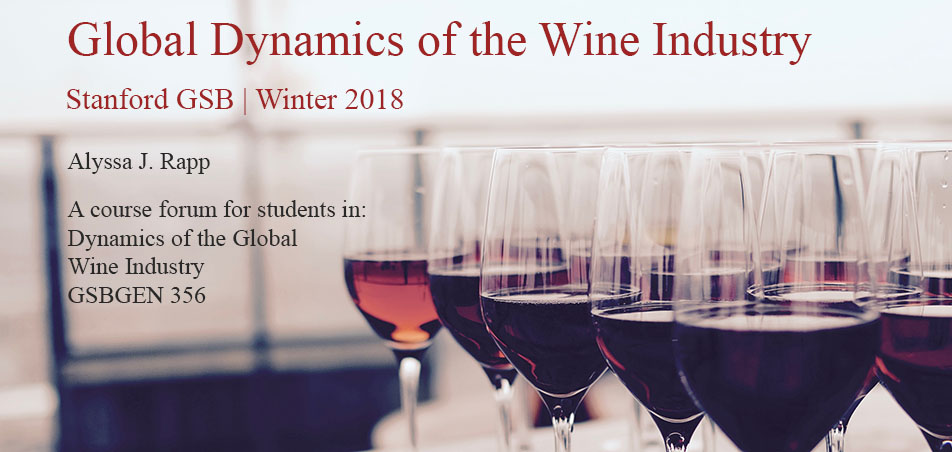I was excited about Dynamics of the Global Wine Industry as a result of a personal interest in wine and a desire to become more knowledgeable about the industry and the product. The (recent) increase in awareness of and demand for Lebanese wines in the US sparked additional curiosity in understanding how the market operates and how new wines and regions are discovered (particularly in an industry where legacy seems to be an important signal of mastery and quality).
Wine at dinner (and at parties and special events) has always been an important part of my immediate family's culture. Even when we lived in a tiny apartment in DC my father had his own version of a starter cellar going at the cost of an additional piece of seating. I have grown to love wine with and without food. My main exposure to wine was Italian- particular full-bodied red wines from Tuscany (the kind you can't see through), per my parent's preferences. It was only in the past 10-15 years, since my family moved back to Lebanon (where we are from), that Lebanese wines have entered into the rotation. This is likely because Lebanese wines weren't available in the US market in the '90s and early '00s, but also because- despite the history of the various vineyards in the Bekaa Valley and Southern Lebanon- we never associated Lebanon with good wine. I visited my first vineyard, Massaya, in Lebanon in the early 00s, however, at that time the winery was better known for its Arak production (Arak is a traditional Lebanese liquor almost identical to the Greek Ouzo, but is mixed with water and served on the rocks).
I first noticed the availability of Lebanese wines in the US when dining at an Italian restaurant on the Bowery in NYC 3 years ago. The restaurant was mainstream and mostly offered Italian and California wines on the wine list- as well as two bottles of Lebanese wine from Chateau Kefraya and Ksara. These wines were some of the most expensive bottles on the wine list at over $100 a bottle. Knowing the supermarket price was closer to $15 I was stunned. The sommelier was very well-versed in the story behind the bottles, and I was both proud and shocked to see them on the menu.
Since that day I've taken a greater interested in Lebanese wines (Ixsir Grande Reserve is my favorite at the moment), and am curious to explore other emerging wine regions.
Coming out of this class I hope to have a better understanding of the challenges of the global wine industry, what contributes to pricing, and how to identify quality wine (beyond my own taste preferences). I also greatly enjoy the stories behind products and producers, look forward to reading the cases, and hearing from the Alyssa Rapp, Amanda, our speakers, and my classmates.

I love Chateau Musar! We should bring some in.
ReplyDelete